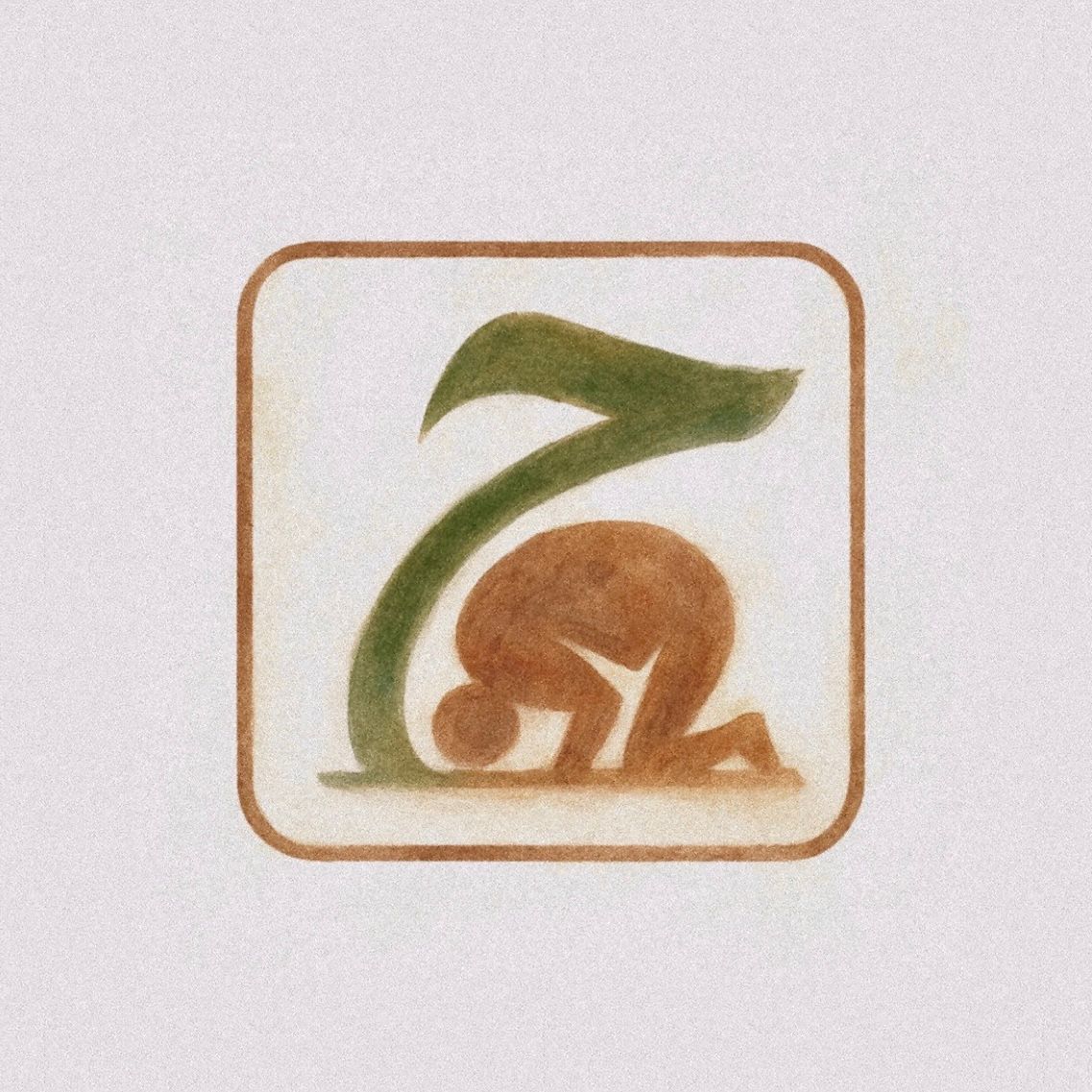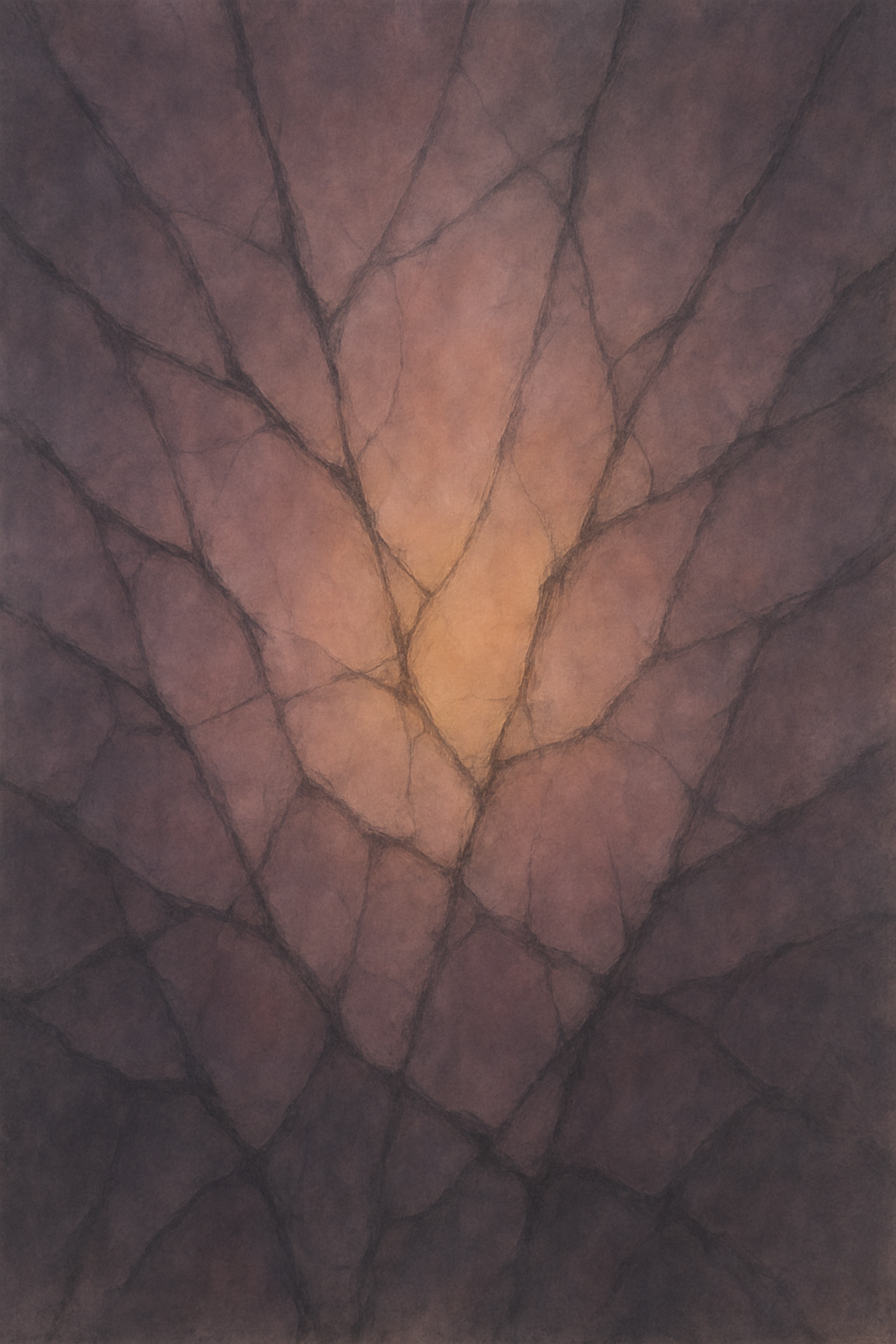sometimes growth looks like breaking.
not quietly. not gracefully.
but messily – mid-prayer, mid-sentence, mid-sin.
you fall.
not just to the floor, but into yourself.
into all the things you swore you were done with.
into the prayers you delayed until they vanished.
into the regrets you buried so deep they began to rot.
and then –
you fall into sujūd.
and that is where the breaking becomes sacred.
you are not too broken to bow
shāytān whispers with surgical precision:
“you think you can face Him like this?”
“you think He’ll still want you?”
“not after what you did. not again.”
but Allāh has already answered that lie:
“say: O My servants who have transgressed against themselves — do not despair of the mercy of Allāh. indeed, Allāh forgives all sins…”
(qur’ān 39:53)
the danger is not your sin.
the danger is despair.
don’t wait until you feel clean.
you bow to become clean.
you come unworthy, because He is worthy.
sujūd is where guilt becomes light
guilt was never meant to crush you – only to crack the shell.
but when guilt festers without sujūd, it turns into a cage.
you start wearing it like skin.
you start thinking it is you.
but guilt, when it is honest, when it bows,
becomes light.
not the soft, airy kind –
but the kind that burns through rot.
“indeed, those who fear Allāh — when an impulse from shāytān touches them, they remember, and at once they have insight.”
(qur’ān 7:201)
that remembrance doesn’t come with eloquence.
it comes with breathlessness.
with the forehead on the floor.
with “forgive me” said like it's the only language left.
the dignity of tawbah
you think coming back makes you pathetic.
allāh thinks it makes you beloved.
“indeed, Allāh loves those who repent…”
(qur’ān 2:222)
this dīn does not romanticise sin –
but it honours the one who turns back.
rasūlullāh ﷺ said:
“the one who repents from sin is like the one who never sinned.”
(ibn mājah)
not “less dirty.”
not “partially forgiven.”
like they never sinned.
tawbah doesn’t just scrub the slate.
it tells the angels: write something better in its place.
“Allāh will replace their evil deeds with good.”
(qur’ān 25:70)
you broke.
you bowed.
and now the page glows.
what breaks in sujūd is what cannot follow you to jannah
not everything can come with you.
not the ego that wants to appear righteous but hides rot.
not the sin you renamed coping.
not the secret you said wasn’t harming anyone.
not the guilt that grew into distance.
sujūd breaks it all open.
and you don’t leave the floor with clean hands –
you leave with clean direction.
“our Lord, we have wronged ourselves — and if You do not forgive us and have mercy upon us, we will surely be among the losers.”
(qur’ān 7:23)
admit it.
all of it.
and watch how mercy rushes in like floodwater through cracked stone.
sincerity vs self-deception
not every tear is tawbah.
and not every dry sujūd is fake.
the test isn’t what you feel – it’s what you do next.
“o my Lord, i have sinned — forgive me.”
Allāh says: “My servant knows he has a Lord who forgives — I have forgiven him.”
even if it happens again.
and again.
and again.
(muslim)
the question is never: did you fall?
the question is: did you turn your face back when you did?
when you break again
you said “never again.”
and then you did.
you said “i’ve changed.”
but the desire didn’t leave.
and now shame has turned into silence.
but if you’re still hurting, still ashamed, still praying at all –
that is a mercy.
you haven’t been hardened.
you are still reachable.
“your Lord is most knowing of what is within yourselves. if you are righteous — then indeed He is ever Forgiving to those who return to Him.”
(qur’ān 17:25)
return.
and if you fall again, return again.
your Lord is not tired of hearing you –
you are tired of returning.
a closing duʿā’
o Allāh –
we have wronged ourselves in ways only You know.
and we have returned to You, because we know no other refuge.
let our sujūd cleanse what our words cannot.
let our regret be accepted.
let our hearts be reshaped.
and let our sin be the reason we finally came home.
āmeen.
may this post be a means of forgiveness, elevation, and reward for janisar hussayn – and a source of healing for every soul who broke, and decided to break open toward allāh instead of away from Him.

